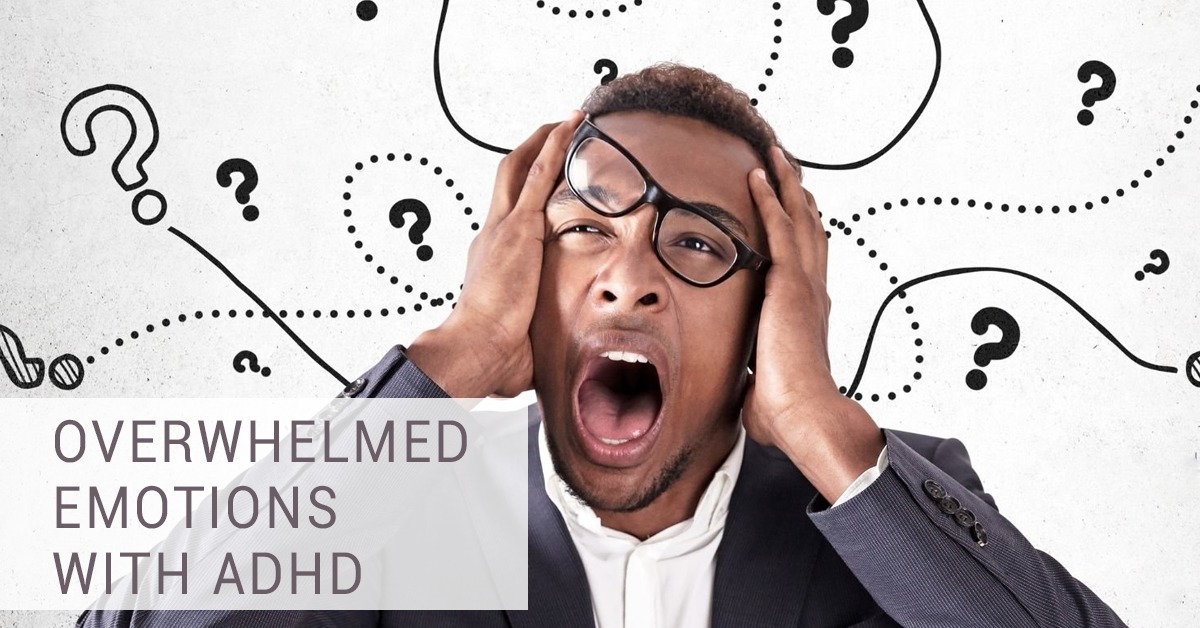How To Cope Up with Overwhelming Emotions with ADHD?
Hyperactivity, impulsivity, and inattention are well-known characteristics of attention deficit hyperactivity disorder (ADHD). If you have this common neurodevelopmental issue, you are probably aware of these difficulties – and may even have devised techniques to deal with them.
Many persons with ADHD struggle with heightened emotions and less well-known symptoms such as emotional dysregulation. Understanding the links between emotional dysregulation and ADHD can help you have more compassion for yourself. You can acquire techniques for dealing with intense emotions. You can learn to act in your best interests under emotional duress over time with the right diagnosis; some clinics also provide Private ADHD Diagnoses
Are you looking for the best ADHD physiatrist near you? Type ADHD doctor for adults near me on Google, and you will get the list of the best ADHD psychiatrist near you.
What's the connection between strong emotions and ADHD?
Emotions are healthy and natural. Emotion regulation is involved in how you perceive and express emotions. When you can control your emotions, you can work toward your goals regardless of how you feel.
Emotional regulation entails five processes:
With ADHD, the actions involved in emotional regulation may not occur automatically, resulting in emotional dysregulation. This means that you are unable to adjust your emotional state in order to achieve your objectives. Emotions might be heightened by impulsivity and executive functioning issues. Impatience, frustration, and fury may:
Emotion regulation deficiencies (ERD) has been discovered in around 34% to 70% of adults with ADHD from all backgrounds, according to mental health specialists. An investigation of emotional dysregulation discovered three types:
Emotional dysregulation is common in people with ADHD, particularly in the area of emotional reactivity. The relationship between ADHD and these areas of emotional dysregulation grows stronger with age. Adults with ADHD may experience emotional dysregulation, which can lead to misunderstandings in relationships, annoyance with other drivers, and car accidents. It appears to result from rather than cause the major symptoms of ADHD. However, if you have both ADHD and difficulty controlling your emotions, you are more likely to face difficulties than if you only have ADHD with concentration and impulsive symptoms.
How You can Regulate Your Emotions?
Fortunately, you can learn emotional regulation by taking evidence-based, actionable steps suggested by professionals you are consulting with. These are simple to implement right now. Slow down and identify your emotions. These approaches will assist you in interrupting intense emotions.
Recognize your bodily signs
You are being triggered if you have shortness of breath, an increased heart rate, a louder voice, and perspiration.
Mindfulness practice
Recent research suggests that mindfulness can benefit both children and adults with ADHD and ERD symptoms. You could attempt one or all of these three contemplative approaches:
This awareness can provide you with the necessary pause to redirect intense emotions. It can also aid in the development of emotional awareness. Mindfulness techniques are frequently available through churches, community centers, or online.
Listen to your thoughts
According to comparative studies, people with ADHD frequently participate in the following styles of thinking unconsciously:
If you are experiencing bad emotions, you could try writing them down.
Bodywork
Emotional management and ADHD are both affected by your soul and intellect. Your body does as well. A review of ADHD literature discovered that exercise helps lessen ADHD symptoms in both adults and children.
Select a therapist from the ADHDMe network for ADHD assistance and connect via secure phone, video, or live chat sessions.
Key Takeaways
ADHD does not have a specific definition of emotional dysregulation or heightened emotions. They may, however, provide difficulties if you have ADHD. Slowing down, practicing mindfulness, reframing negative ideas, and exercising are all simple techniques for redirecting intense emotions. Another alternative that may work for you is to seek the assistance of a mental health expert either in person or anADHD psychiatrist online.
